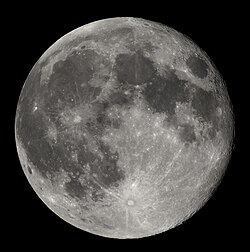Exogeny
Exogeny refers to coming from the outside. People, planets, computers, and anything else can be influenced either by things in its environment or by things within itself. Things from within itself are indigenous.
The Earth is shaped by many geological processes. The forces that make these things happen come from both inside and outside the Earth.
In geology, exogenous processes come from forces on or above the Earth's surface. Processes caused by forces from within the Earth are endogenous processes. Exo is a prefix meaning "out", and endo is a prefix meaning "in".
Many exogenous (extraterrestrial) forces are caused by other bodies in the Solar System. For example, the Moon causes tides in the Earth's oceans and other big bodies of water. Impacts from comets and meteoroids change the surface of the Earth. When they strike the Earth, they make craters in the ground.
The Sun is the main exogenous influence in the Solar System. It has many effects on Earth. Radiation from the Sun is a main cause of the surface temperature of the Earth, and for the growth of plant life. We are partly shielded from the Sun's solar wind by the Earth's magnetic field. Storms of solar particles would otherwise strip away the ozone layer which protects us from ultraviolet radiation. Sometimes we see aurorae, which are lights that can be seen at night near the poles.
An example of an exogenous process that is not as a result of bodies in space is erosion. Erosion is mostly made by precipitation such as rain and snow, and by wind.
There are three main endogenous geological processes: folding, faulting and volcanism. They take place mainly along the plate boundaries. These are the zones on the edges of plates. Endogenous processes cause many major landform features.

